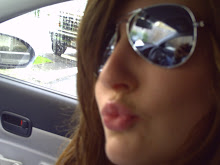By 1912, a hardened and loquacious Pancho had created an empire. Along with his own contribution, the exports of salitre sailed to two million tons per year, and for every ton that was exported – a share went directly into the firm and deeply protected pockets of the Antofagasta family. So big did his fortune grow, that his grandfather (the second and only remaining son of Pancho Antofagasta) repeated listlessly throughout his exceedingly comfortable life, “A diamond as big as the Ritz, my boy. A diamond as big as the Ritz.” Of course, this was an exaggeration, because the Ritz was humongous. Carlos suspected that his grandfather only referred to it so often because it was built in 1940, and his grandfather spent a considerable amount of that decade chasing fast women and drinking there.
His grandfather, Adelmo Meli Valdivia Antofagasta, squandered a vast amount of money but barely put a dent into the dome of his father’s financial legacy. During his younger years he was a pratical student and learned English by an American au pare by the name of Lucy. She was a cynic and taught Adelmo to be just that if not more, and eventually Adelmo’s newly-learned cynicism got the best of him and he self-medicated himself into late night rendezvous with femme-fatal want-to-be starlettes of the 40s. He did nothing with his life but travel and study until the age of forty-five when, by chance, he met a nineteen year-old oblivious woman (girl, rather) named Olga Kuntzmann. She was daughter of the Kuntzmann beer company, comprised of a collection of German escapees after the war who had made their fortunes from it and settled nicely in what they deemed “some warm foreign country in South America.” Their Italian counterparts, whom they visited often, settled on the other side of the Andes in Argentina, and Carlos’ grandfather spent many a summer in Buenos Ares eating salty, oily pizza and drinking his warm ocean-sprayed days away.
But after he met Ms. Kuntzmann, supposed heiress to the Kuntzmann kismet, and after he realized that his father was ailing from old age, his demeanor changed towards that mysterious human notion to progress one’s seed. A marriage ensued and a baby was born, and then a whole team of children were born and suddenly Adelmo found himself a responsible man with a family and a seemingly ever-profitable copper mine.
His children took after him, but like he, did not nearly affect the substantial fortune that the Antofagasta family had built. His first son, Sebastian, fell victim to the ideals of Marxism. After long, drawn out roller-coaster rides within his family, Adelmo decided secretly to excommunicate his first son from the family, and in his own rapture, sent Seba to the very place he belonged, so he said. Adelmo told his family one night over a spread of duck and sauvignon blanc amidst gold-plated dining ware and silver spoons, that Seba had decided to visit Cuba to join what he’d hought was “righteous.” And so, Carlos never met his great uncle, Sebastian Meli Valdivi Antofagasta.
But at that dining table that night, lined by illiterate Mapuche “help,” Carlos’ father Adolpho (named after Adelmo’s apparent righteous cause, but more influenced by a WWII adoring Olga Kuntzmann) watched with sparkling bright eyes. And so the tradition continued, the Antofagastas conservatively lived near their volatile land stuffed richly with copper, which exploded not more than four years ago. Of course, there were constantly explosions occurring in the mine itself, but a more political explosion tore the mine hill from hill, deep hole from deep hole.
